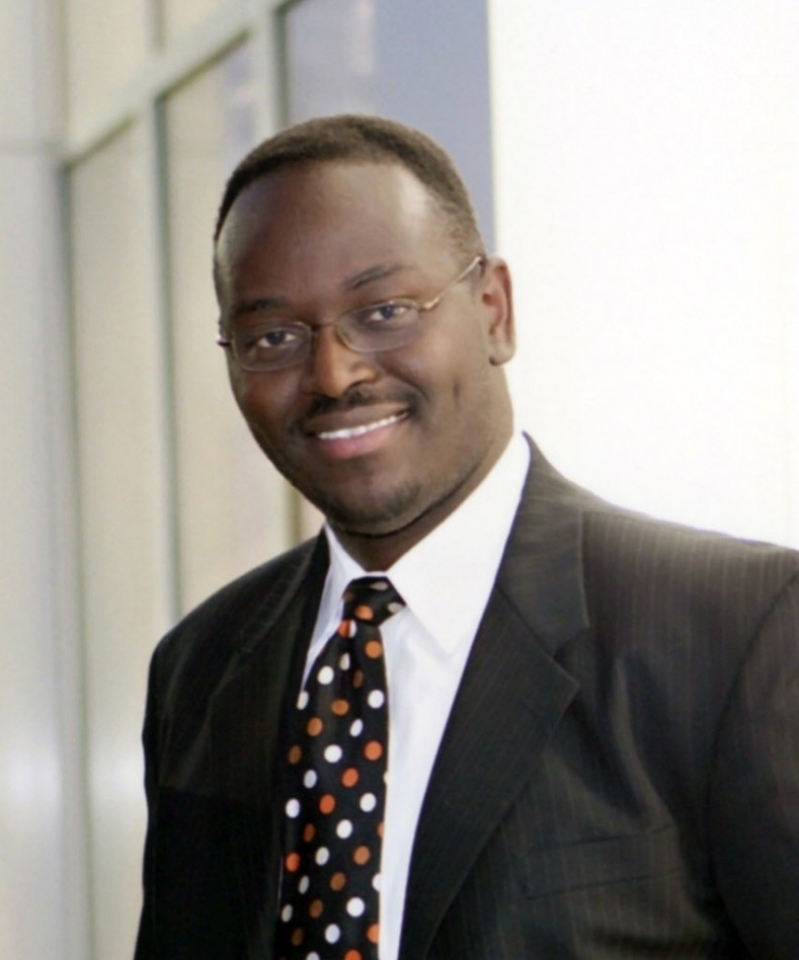
The Rev. Clementa Pinckney, the South Carolina state senator who was brutally murdered along with eight others during an attack at a historic black church Wednesday night, has been remembered for his commitment to his faith, passion for social justice, and love for his community.
Born on July 30, 1973 to John and Theopia Pinckney, Pinckney felt God's calling to the ministry at a young age. At 13 years old, he began preaching in his local church, and by the time he was 18, he had received his first appointment to be a pastor.
Pinckney, who has been described as "an exceptionally charismatic" young man, was elected to the South Carolina House of Representatives at 23, becoming the youngest African-American to be elected to the State Legislature. Three years later, he became the pastor of the Emanuel African Method Episcopal Church, where he often led Bible studies and prayer meetings.
"There many people who say, why would you as a preacher, why would you as a pastor be involved in public life? Our calling is not just within the walls of the congregation, but we are part of the life and the community in which our congregation resides," Pinckney explained of his dedication to both faith and politics in 2013.
Four years after his election to the South Carolina House of Representatives, he was elected to the State Senate. There, he served on numerous committees, including on finance, banking and insurance, transportation, medical affairs, and corrections and penology.
"He was the conscience of the General Assembly," State Representative Bill Clyburn, who met Pinckney when he was 18 or 19 years old and had just become an ordained minister, told the New Republic.
"When he went to the mic, people would listen to him-he would never come close to saying something ugly, or calling somebody a liar," says Clyburn. "He would put emphasis on his words-and you knew he meant it."
Mr. Pinckney graduated from Allen University in 1995 and obtained a master of public administration degree from the University of South Carolina as well as a master of divinity from the Lutheran Theological Southern Seminary, according to the Emanuel church's website.
In 1999-the same year Ebony Magazine named him as one of 30 African-American leaders of the future-Pinckney married Jennifer Benjamin, whom he met while in college and called his "greatest political support." The pair eventually had two daughters, Eliana and Malana.
State Rep. Wendell Gilliard told the Charleston Post and Courier that he visited Pinckney's wife and daughters after Wednesday's shooting, saying that the family is "surrounded by friends."
The New York Times notes that Pinckney passionately advocated for human rights: as a state senator he campaigned for legislation requiring members of the police force to wear body cameras. Later, he led a rally after Walter L. Scott, an unarmed black man, was shot and killed by a white police officer in North Charleston, S.C.
He had also been campaigning on behalf of Hillary Rodham Clinton for the Democratic nomination for president.
In the 1999 article in The Savannah Morning News, Mr. Pinckney explained that his political activism was motivated by his strong commitment to his faith.
"I see everything I do as an extension of the ministry," he said. "It's all about service. In the community, in the African-American community, one person ought to say something and that is the minister. The minister is paid by the people. He doesn't work for a big company. He doesn't represent a particular special interest."
In a 2013 sermon, Pinckney emphasized that he would be willing to die his beliefs--just like one of the founders of Emanuel AME church, Denmark Vesey, who was the leader of a failed slave uprising in South Carolina.
"That is what church is all about: freedom to worship and freedom from sin, freedom to be full of what God intends us to be, and to have equality in the sight of God," he said. "And sometimes you got to make noise to do that. Sometimes you may even have to die like Denmark Vesey to do that."
Pinckney's dedication to his ministry was evident until the very end: Sen. Marlon E. Kimpson, D-Charleston, who last spoke with Sen. Pinckney just hours before he was killed, said the pastor informed him he would need to leave a budget debate early yesterday in order to attend a church meeting. At that meeting, Pinckney led several members of his flock in prayer and worship for an hour before he was killed by 21-year-old Dylann Storm Roof, who sat next to him the entire service.
"... That shows you the measure of a man that was not only committed to senate work by day but also he was committed to his church 24/7," Kimpson told CNN on Thursday. "He drove two hours to be there with his parishioners ... it's a sad day in South Carolina. We've lost a giant and a legend of a man."






